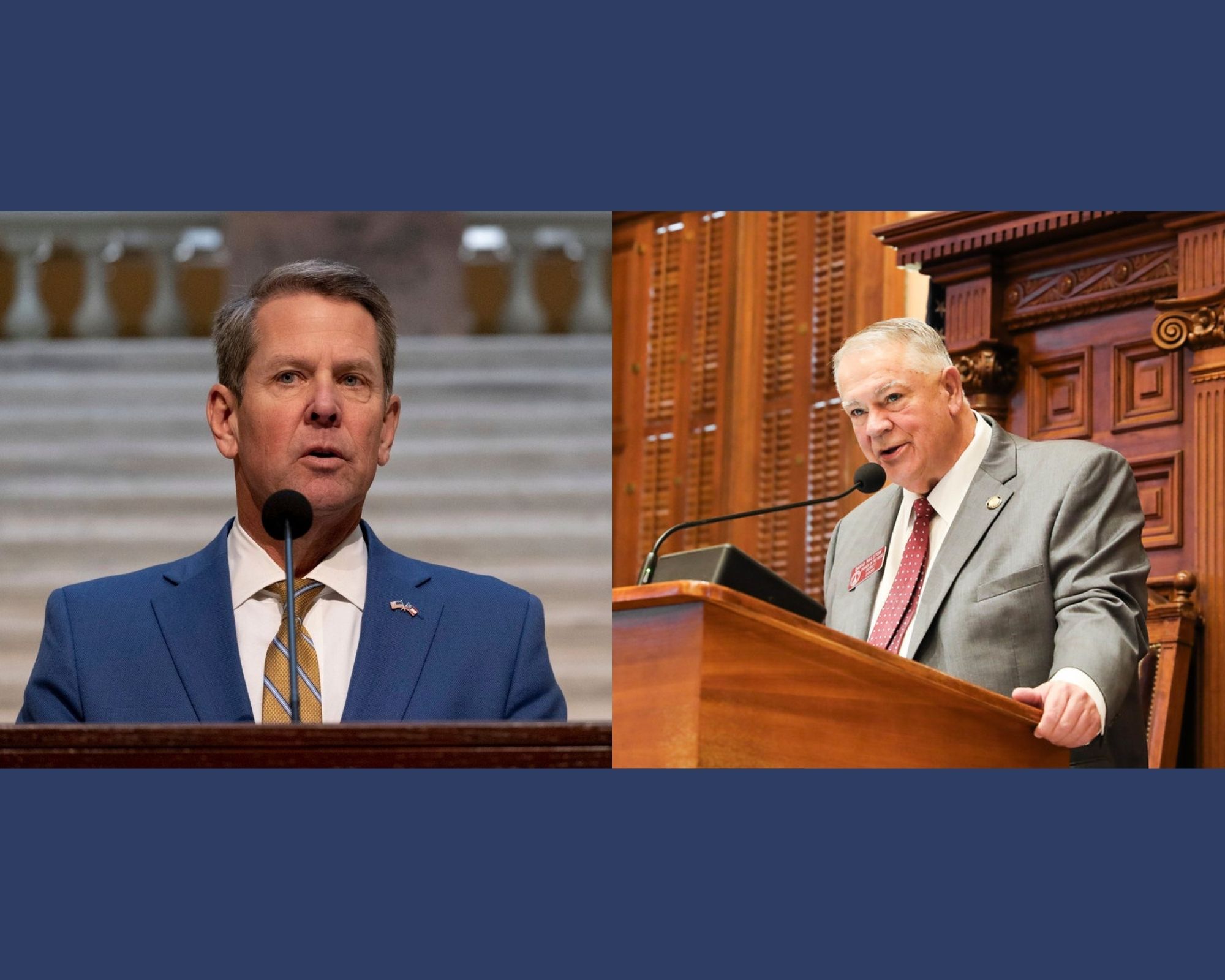
By Tom Baxter
How do you look a $4.7 billion gift horse in the mouth?
Last week, as the buzz from crossover day at the legislature dissipated into a deep torpor, Georgia Republicans were contemplating that question, and they weren’t singing “Happy Days Are Here Again.”
For one thing, complained Gov. Brian Kemp and Republican members of Georgia’s congressional caucus, the formula used in the pandemic relief bill signed last Thursday by President Biden favors blue states over red states.
The money we’re speaking of here is only a small part of the total $1.9 trillion package, added to the original House-passed bill by the Senate to help state and local governments impacted by the pandemic. It divides $25 billion equally among the states, and allocates $169 billion based on each state’s unemployment rate.
Republicans say this isn’t fair to states that opened their economies and kept more people working.
For another thing, Kemp and House Speaker David Ralston said, a provision in the bill would prevent the state from passing a $140 million state income tax cut which has passed the state House and is awaiting approval in the Senate.
The bill gives states and local governments broad discretion over how they spend this money, but it prohibits using the money to offset tax cuts or bailing out pension funds. Republicans have criticized this as an example of Washington intruding in the states’ business, but it was moderate Democrats led by Sen. Joe Manchin who insisted on the provision late in the negotiations over the bill.
This prohibition only runs through 2024, and states can set aside other revenues if they are bent on a tax cut. But let’s say Kemp and Ralston have a point. It still amounts to only about 2.98 percent of a point, because that’s what $140 million is compared to $4.7 billion.
Ralston sent a letter to former Sen. David Perdue last year appeal for federal aid to the states. His only legitimate complaint now is that he caught the car.
The size of this bill overwhelms the complaints about the formula as well. Or at least you could say it postpones them, while lawmakers in red states and blue grapple with the question of what to do with all this largely unanticipated money.
Actually, the bill allots a total of $8.4 billion to state and local governments in Georgia, with about $4.7 billion for state governments and capitol projects, and about 3.5 billion to Georgia cities and counties. Last year’s pandemic relief bill only allowed larger cities and counties to decide how to spend the money allotted to them, and gave the states authority over the rest of the local funds. This year’s bill sends money directly to the smaller municipalities. This gives the governor and state lawmakers less of a say over the total package, but they have a staggering amount to decide how to spend anyway.
The bill also allocates $262 million for “critical capitol projects directly enabling work, education and health monitoring, including remote options” in response to the pandemic. There has been some puzzling over what this means exactly, but the wording strongly suggests that it’s intended to include a big increase in broadband projects. This could be big news in rural Georgia.
One reason Republican lawmakers are reacting gingerly to this bonanza is that it reopens the thorny issue of Medicaid expansion. The stated purpose of this part of the bill is to help state and local governments recover from the losses, such as layoffs and closing of facilities, suffered as a result of the COVID-19 pandemic.
As it has turned out, states haven’t been as negatively impacted by the pandemic as expected, though local governments have been hit severely. That has led Republican legislators to talk about spending this loose money on road-paving and bridge-repair projects. If it’s not a stretch to construe that as pandemic relief, Democrats are going to argue, then surely Medicaid expansion is fair game.
It’s important to remember that all these millions and billions add up to only a small part of the total relief bill, equal in size to the Trump tax cut but impacting millions of Americans much more directly.
Even more than the stimulus checks which are expected to begin showing up in Americans’ bank accounts, the part of the bill which is likely to have the greatest economic, social and political impact is the one year expansion of the child tax credit, which will not only result in many families getting a larger income tax refund, but also a monthly check starting in July.
This is expected to have a dramatic impact on the poverty rate, but what happens when the credit comes up for congressional re-approval next year? That, more than any of the quibbles heard so far, looks to be the real controversy arising from this bill.
"again" - Google News
March 16, 2021 at 06:56AM
https://ift.tt/3cwTzzM
Fiscal bonanza hasn’t got Republicans singing ‘Happy Days Are Here Again’ - SaportaReport
"again" - Google News
https://ift.tt/2YsuQr6
https://ift.tt/2KUD1V2
Bagikan Berita Ini














0 Response to "Fiscal bonanza hasn’t got Republicans singing ‘Happy Days Are Here Again’ - SaportaReport"
Post a Comment